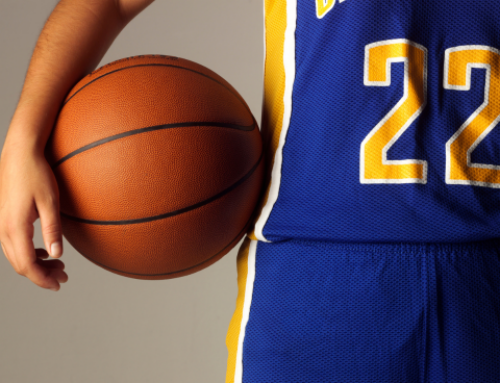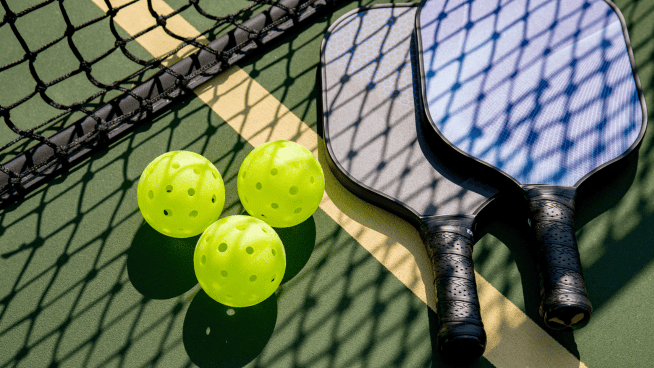How to Fight Procrastination and Get Better Grades
Procrastination is the number one bad habit of student-athletes. You’re supposed to be studying and going through the college selection process. Instead, you’re making every possible excuse to avoid them. Most of the time, you’re just using delaying tactics, and you ultimately get the job done. But frequent procrastination can hurt your grades and even your chance to win a scholarship.
Here’s a classic example of procrastination. You’re working on a paper on your computer. But instead of researching sources and making an outline, you’re wasting time on Facebook, or surfing the web, or playing video games. Then you get up, clean your room, make some food and take a shower. Suddenly it’s bedtime and your paper is due tomorrow!
According to research done by Joseph Ferrari, associate professor at DePaul University, procrastination comes in three different forms:
Arousal Type
This is the crazy thrill seeker who waits until the last minute to get things done in an attempt to get high off the euphoric rush. These students brag about not studying until the night before an exam, then pulling an all-nighter. They normally say this with a smirk that implies they just did the coolest thing on the planet.
Avoider Type
Avoiders put off making decisions because they would rather have people think they lack effort than question their ability. For example, say you’re taking a class that’s kicking your butt. You think it will get better as the semester progresses, so you put off trying or working hard. But the class kicks your butt all semester, and by the time the final exam rolls around, you haven’t studied or engaged in the class at all.
Decisional Type
The decisional procrastinator holds off making decisions because it absolves him of responsibility for the outcome of events. If you don’t make a choice, you can’t be held responsible if the result is failure. You know you’re not doing well in your math class, but you hold off deciding whether to get a tutor. Since you never make the decision, you end up getting a C in the class.
Do you recognize yourself in one of these three types?
The Dangers of Procrastination
Procrastination can be a harmless tendency, or it can turn into a bad habit that prevents you from buckling down and studying. Have you ever crammed before a test and got a poor grade because you were too tired to focus? Although you might occasionally get away with last-minute preparation, have you ever wondered what it would be like if you studied in advance? You might receive a 93 on a test instead of an 83?
By procrastinating, you are missing out on those extra points over your entire high school career. When you’re ready to go to college, you’ll mainly have B’s and a 2.8 GPA. If you didn’t procrastinate, you could have raised that to a 3.8.
The financial benefits of a higher GPA play out well. Let’s say you are looking at schools that cost between $36,000 and $55,000 a year. You may receive $5,000 in financial aid and between $11,000 and $16,000 in athletic scholarships per year, but you still have to cover the remaining portion of the tuition. Time to assess your merit scholarship package. We can assure you that with a 2.8 GPA, you will get no more than $3,000 per year. If your GPA were 3.8, however, you could be looking at between $11,000 and $14,000 a year. That could close the gap and save you a ton of money.
That’s why the grades you get and the academic decisions you make are so critical when you are in high school—they can seriously impact the rest of your future.
Ways to Fight Procrastination
- Write down a schedule for yourself so you know when it’s time to focus on work
- Give yourself a set amount of time each day for things that are normally distractions. Going completely cold turkey will inevitably lead to procrastination
- Remove potential distractions from your work space. For example, if you’re working on a paper, use full-screen mode so you don’t see emails pop up or friends messaging you on Facebook
- Clear clutter and other distractions from your desk
- If you need a break, set a timer to prevent you from procrastinating for too long
- Work on large projects or study for tests in small chunks rather than cramming the night before. This will reduce time spent procrastinating, because the task at hand does not seem as overwhelming
- Turn off your cell phone
As a student-athlete, you need to be proactive and go to class prepared. By studying throughout the semester, you won’t have to cram weeks’ worth of instruction in the last eight hours. Remember your ultimate goal—getting that diploma and then a college degree, debt-free.
Photo: standford.edu
THR College Planning is one of the nation’s premier recruiting and placement programs. THR specializes in leveraging financial opportunities in the educational market. Academic development, financial aid assistance and athletic placement are keys to a successful THR plan. On average, THR has facilitated awards of $92,000 in scholarship money over four years. For further information, send an email to [email protected] or call 1-855-847-4723 (THR GRAD).
RECOMMENDED FOR YOU
MOST POPULAR
How to Fight Procrastination and Get Better Grades
Procrastination is the number one bad habit of student-athletes. You’re supposed to be studying and going through the college selection process. Instead, you’re making every possible excuse to avoid them. Most of the time, you’re just using delaying tactics, and you ultimately get the job done. But frequent procrastination can hurt your grades and even your chance to win a scholarship.
Here’s a classic example of procrastination. You’re working on a paper on your computer. But instead of researching sources and making an outline, you’re wasting time on Facebook, or surfing the web, or playing video games. Then you get up, clean your room, make some food and take a shower. Suddenly it’s bedtime and your paper is due tomorrow!
According to research done by Joseph Ferrari, associate professor at DePaul University, procrastination comes in three different forms:
Arousal Type
This is the crazy thrill seeker who waits until the last minute to get things done in an attempt to get high off the euphoric rush. These students brag about not studying until the night before an exam, then pulling an all-nighter. They normally say this with a smirk that implies they just did the coolest thing on the planet.
Avoider Type
Avoiders put off making decisions because they would rather have people think they lack effort than question their ability. For example, say you’re taking a class that’s kicking your butt. You think it will get better as the semester progresses, so you put off trying or working hard. But the class kicks your butt all semester, and by the time the final exam rolls around, you haven’t studied or engaged in the class at all.
Decisional Type
The decisional procrastinator holds off making decisions because it absolves him of responsibility for the outcome of events. If you don’t make a choice, you can’t be held responsible if the result is failure. You know you’re not doing well in your math class, but you hold off deciding whether to get a tutor. Since you never make the decision, you end up getting a C in the class.
Do you recognize yourself in one of these three types?
The Dangers of Procrastination
Procrastination can be a harmless tendency, or it can turn into a bad habit that prevents you from buckling down and studying. Have you ever crammed before a test and got a poor grade because you were too tired to focus? Although you might occasionally get away with last-minute preparation, have you ever wondered what it would be like if you studied in advance? You might receive a 93 on a test instead of an 83?
By procrastinating, you are missing out on those extra points over your entire high school career. When you’re ready to go to college, you’ll mainly have B’s and a 2.8 GPA. If you didn’t procrastinate, you could have raised that to a 3.8.
The financial benefits of a higher GPA play out well. Let’s say you are looking at schools that cost between $36,000 and $55,000 a year. You may receive $5,000 in financial aid and between $11,000 and $16,000 in athletic scholarships per year, but you still have to cover the remaining portion of the tuition. Time to assess your merit scholarship package. We can assure you that with a 2.8 GPA, you will get no more than $3,000 per year. If your GPA were 3.8, however, you could be looking at between $11,000 and $14,000 a year. That could close the gap and save you a ton of money.
That’s why the grades you get and the academic decisions you make are so critical when you are in high school—they can seriously impact the rest of your future.
Ways to Fight Procrastination
- Write down a schedule for yourself so you know when it’s time to focus on work
- Give yourself a set amount of time each day for things that are normally distractions. Going completely cold turkey will inevitably lead to procrastination
- Remove potential distractions from your work space. For example, if you’re working on a paper, use full-screen mode so you don’t see emails pop up or friends messaging you on Facebook
- Clear clutter and other distractions from your desk
- If you need a break, set a timer to prevent you from procrastinating for too long
- Work on large projects or study for tests in small chunks rather than cramming the night before. This will reduce time spent procrastinating, because the task at hand does not seem as overwhelming
- Turn off your cell phone
As a student-athlete, you need to be proactive and go to class prepared. By studying throughout the semester, you won’t have to cram weeks’ worth of instruction in the last eight hours. Remember your ultimate goal—getting that diploma and then a college degree, debt-free.
Photo: standford.edu
THR College Planning is one of the nation’s premier recruiting and placement programs. THR specializes in leveraging financial opportunities in the educational market. Academic development, financial aid assistance and athletic placement are keys to a successful THR plan. On average, THR has facilitated awards of $92,000 in scholarship money over four years. For further information, send an email to [email protected] or call 1-855-847-4723 (THR GRAD).
RECOMMENDED FOR YOU
Create A Free Recruiting Profile Today!
CaptainU helps athletes & parents not only be proactive but also to manage and take control of their entire recruiting journey.











